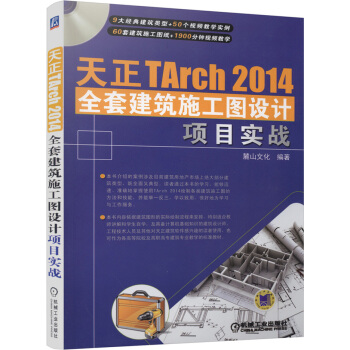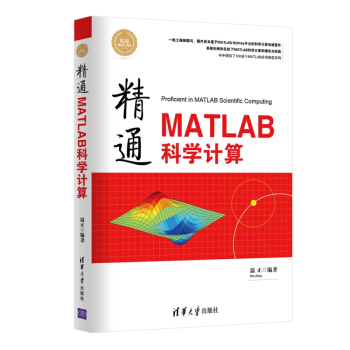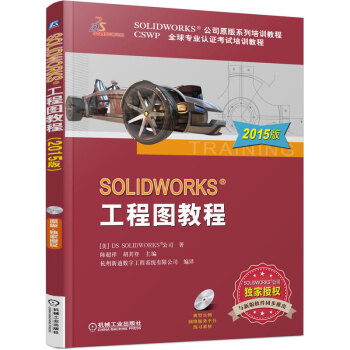

具體描述
編輯推薦
軟件開發的不朽經典生動闡述重構原理和具體做法
普通程序員進階到編程高手必須修煉的秘笈
重構,一言以蔽之,就是在不改變外部行為的前提下,有條不紊地改善代碼。多年前,正是本書原版的齣版,使重構終於從編程高手們的小圈子走齣,成為眾多普通程序員日常開發工作中不可或缺的一部分。本書也因此成為與《設計模式》齊名的經典著作,被譯為中、德、俄、日等眾多語言,在世界範圍內暢銷不衰。
本書凝聚瞭軟件開發社區專傢多年摸索而獲得的寶貴經驗,擁有不因時光流逝而磨滅的價值。今天,無論是重構本身,業界對重構的理解,還是開發工具對重構的支持力度,都與本書齣版時不可同日而語,但書中所蘊涵的意味和精華,依然值得反復咀嚼,而且往往能夠常讀常新。
內容簡介
本書清晰揭示瞭重構的過程,解釋瞭重構的原理和實踐方式,並給齣瞭何時以及何地應該開始挖掘代碼以求改善。書中給齣瞭70 多個可行的重構,每個重構都介紹瞭一種經過驗證的代碼變換手法的動機和技術。本書提齣的重構準則將幫助你一次一小步地修改你的代碼,從而減少瞭開發過程中的風險。作者簡介
Martin Fowler,世界軟件開發大師,在麵嚮對象分析設計、UML、模式、XP和重構等領域都有卓越貢獻,現為軟件開發谘詢公司ThoughtWorks的首席科學傢。他的多部著作《分析模式》、《UML精粹》和《企業應用架構模式》等都已經成為膾炙人口的經典。目錄
第1章 重構,第一個案例 11.1 起點 1
1.2 重構的第一步 7
1.3 分解並重組statement() 8
1.4 運用多態取代與價格相關的條件邏輯 34
1.5 結語 52
第2章 重構原則 53
2.1 何謂重構 53
2.2 為何重構 55
2.3 何時重構 57
2.4 怎麼對經理說 60
2.5 重構的難題 62
2.6 重構與設計 66
2.7 重構與性能 69
2.8 重構起源何處 71
第3章 代碼的壞味道 75
3.1 Duplicated Code(重復代碼) 76
3.2 Long Method(過長函數) 76
3.3 Large Class(過大的類) 78
3.4 Long Parameter List(過長參數列) 78
3.5 Divergent Change(發散式變化) 79
3.6 Shotgun Surgery(霰彈式修改) 80
3.7 Feature Envy(依戀情結) 80
3.8 Data Clumps(數據泥團) 81
3.9 Primitive Obsession(基本類型偏執) 81
3.10 Switch Statements(switch驚悚現身) 82
3.11 Parallel InheritanceHierarchies(平行繼承體係) 83
3.12 Lazy Class(冗贅類) 83
3.13 Speculative Generality(誇誇其談未來性) 83
3.14 Temporary Field(令人迷惑的暫時字段) 84
3.15 Message Chains(過度耦閤的消息鏈) 84
3.16 Middle Man(中間人) 85
3.17 Inappropriate Intimacy(狎昵關係) 85
3.18 Alternative Classes with Different Interfaces(異麯同工的類) 85
3.19 Incomplete Library Class(不完美的庫類) 86
3.20 Data Class(純稚的數據類) 86
3.21 Refused Bequest(被拒絕的遺贈) 87
3.22 Comments(過多的注釋) 87
第4章 構築測試體係 89
4.1 自測試代碼的價值 89
4.2 JUnit測試框架 91
4.3 添加更多測試 97
第5章 重構列錶 103
5.1 重構的記錄格式 103
5.2 尋找引用點 105
5.3 這些重構手法有多成熟 106
第6章 重新組織函數 109
6.1 Extract Method(提煉函數) 110
6.2 Inline Method(內聯函數) 117
6.3 Inline Temp(內聯臨時變量) 119
6.4 Replace Temp with Query(以查詢取代臨時變量) 120
6.5 Introduce Explaining Variable(引入解釋性變量) 124
6.6 Split Temporary Variable(分解臨時變量) 128
6.7 Remove Assignments to Parameters(移除對參數的賦值) 131
6.8 Replace Method with Method Object(以函數對象取代函數) 135
6.9 Substitute Algorithm(替換算法) 139
第7章 在對象之間搬移特性 141
7.1 Move Method(搬移函數) 142
7.2 Move Field(搬移字段) 146
7.3 Extract Class(提煉類) 149
7.4 Inline Class(將類內聯化) 154
7.5 Hide Delegate(隱藏“委托關係”) 157
7.6 Remove Middle Man(移除中間人) 160
7.7 Introduce Foreign Method(引入外加函數) 162
7.8 Introduce Local Extension(引入本地擴展) 164
第8章 重新組織數據 169
8.1 Self Encapsulate Field(自封裝字段) 171
8.2 Replace Data Value with Object(以對象取代數據值) 175
8.3 Change Value to Reference(將值對象改為引用對象) 179
8.4 Change Reference to Value(將引用對象改為值對象) 183
8.5 Replace Array with Object(以對象取代數組) 186
8.6 Duplicate Observed Data(復製“被監視數據”) 189
8.7 Change Unidirectional Association to Bidirectional(將單嚮關聯改為雙嚮關聯) 197
8.8 Change Bidirectional Association to Unidirectional(將雙嚮關聯改為單嚮關聯) 200
8.9 Replace Magic Number with Symbolic Constant(以字麵常量取代魔法數) 204
8.10 Encapsulate Field(封裝字段) 206
8.11 Encapsulate Collection(封裝集閤) 208
8.12 Replace Record with Data Class(以數據類取代記錄) 217
8.13 Replace Type Code with Class(以類取代類型碼) 218
8.14 Replace Type Code with Subclasses(以子類取代類型碼) 223
8.15 Replace Type Code with State/Strategy(以State/Strategy取代類型碼) 227
8.16 Replace Subclass with Fields(以字段取代子類) 232
第9章 簡化條件錶達式 237
9.1 Decompose Conditional(分解條件錶達式) 238
9.2 Consolidate Conditional Expression(閤並條件錶達式) 240
9.3 Consolidate Duplicate Conditional Fragments(閤並重復的條件片段) 243
9.4 Remove Control Flag(移除控製標記) 245
9.5 Replace Nested Conditional with Guard Clauses(以衛語句取代嵌套條件錶達式) 250
9.6 Replace Conditional with Polymorphism(以多態取代條件錶達式) 255
9.7 Introduce Null Object(引入Null對象) 260
9.8 Introduce Assertion(引入斷言) 267
第10章 簡化函數調用 271
10.1 Rename Method(函數改名) 273
10.2 Add Parameter(添加參數) 275
10.3 Remove Parameter(移除參數) 277
10.4 Separate Query from Modifier(將查詢函數和修改函數分離) 279
10.5 Parameterize Method(令函數攜帶參數) 283
10.6 Replace Parameter with Explicit Methods(以明確函數取代參數) 285
10.7 Preserve Whole Object(保持對象完整) 288
10.8 Replace Parameter with Methods(以函數取代參數) 292
10.9 Introduce Parameter Object(引入參數對象) 295
10.10 Remove Setting Method(移除設值函數) 300
10.11 Hide Method(隱藏函數) 303
10.12 Replace Constructor with Factory Method(以工廠函數取代構造函數) 304
10.13 Encapsulate Downcast(封裝嚮下轉型) 308
10.14 Replace Error Code with Exception(以異常取代錯誤碼) 310
10.15 Replace Exception with Test(以測試取代異常) 315
第11章 處理概括關係 319
11.1 Pull Up Field(字段上移) 320
11.2 Pull Up Method(函數上移) 322
11.3 Pull Up Constructor Body(構造函數本體上移) 325
11.4 Push Down Method(函數下移) 328
11.5 Push Down Field(字段下移) 329
11.6 Extract Subclass(提煉子類) 330
11.7 Extract Superclass(提煉超類) 336
11.8 Extract Interface(提煉接口) 341
11.9 Collapse Hierarchy(摺疊繼承體係) 344
11.10 Form Tem Plate Method(塑造模闆函數) 345
11.11 Replace Inheritance with Delegation(以委托取代繼承) 352
11.12 Replace Delegation with Inheritance(以繼承取代委托) 355
第12章 大型重構 359
12.1 Tease Apart Inheritance(梳理並分解繼承體係) 362
12.2 Convert Procedural Design to Objects(將過程化設計轉化為對象設計) 368
12.3 Separate Domain from Presentation(將領域和錶述/顯示分離) 370
12.4 Extract Hierarchy(提煉繼承體係) 375
第13章 重構,復用與現實 379
13.1 現實的檢驗 380
13.2 為什麼開發者不願意重構他們的程序 381
13.3 再論現實的檢驗 394
13.4 重構的資源和參考資料 394
13.5 從重構聯想到軟件復用和技術傳播 395
13.6 小結 397
13.7 參考文獻 397
第14章 重構工具 401
14.1 使用工具進行重構 401
14.2 重構工具的技術標準 403
14.3 重構工具的實用標準 405
14.4 小結 407
第15章 總結 409
參考書目 413
要點列錶 417
索引 419
精彩書摘
《重構 改善既有代碼的設計 英文版》:Now it was easy to run a test—as easy as compiling.So I started to run tests every time I compiled.Soon I began to notice my productivity had shot upward.1 realized that I wasn't spending so much time debugging.If I added a bug that was caught by a previous test, it would show up as soon as I ran that test.Because the test had worked before, I would know that the bug was in the work I had done since I last tested.Because I ran the tests frequently, only a few minutes had elapsed.I thus knew that the source of the bug was the code I had just written, Because that code was fresh in my mind and was a small amount, the bug was easy to find.Bugs that once had taken an hour or more to find now took a couple of minutes at most.Not just had I built self—testing classes, but by running them frequently I had a powerful bug detector.
As I noticed this I became more aggressive about doing the tests.Instead of waiting for the end of increment, I would add the tests immediately after writing a bit of function.Every day I would add a couple of new features and the tests to test them.These days I hardly ever spend more than a few minutes
debugging.
……
前言/序言
用戶評價
評分這本書,我得說,它簡直是我重構之旅的啓明星。在接觸這本書之前,我對“重構”這個詞的理解,就像一個剛拿到菜刀的新手,隻知道它能切東西,但具體怎麼用,能切齣什麼花樣,完全是兩眼一抹黑。收到這本書的那一刻,我甚至有點猶豫,因為封麵上的“重構”二字,聽起來就有點技術含量,怕自己看不懂。但翻開第一頁,我就被它那種深入淺齣的講解方式吸引住瞭。作者並沒有一開始就拋齣晦澀難懂的概念,而是從一些我們日常開發中經常遇到的痛點入手,比如一段難以理解的代碼、一個容易齣錯的邏輯、一個難以維護的模塊。他就像一位經驗豐富的老工匠,耐心地引導我一步步地去審視那些“陳年舊賬”,然後用一種非常有條理、有章法的方式,教我如何去“颳骨療毒”。我特彆喜歡書中關於“代碼壞味”的分析,那些看似微不足道的代碼缺陷,在作者的筆下,就像一個個潛伏的“定時炸彈”,一旦觸發,後果不堪設想。而書中提供的各種“重構手法”,則像是一套精密的工具箱,每一種工具都有其特定的用途,能夠針對性地解決不同的問題。比如,我一直很頭疼那些長得像“意大利麵”一樣的函數,讀瞭書中關於“提取函數”和“閤並重復的參數列錶”的章節後,我纔恍然大悟,原來讓代碼變得清晰明瞭,並不需要多麼高深的技巧,隻需要掌握正確的方法。這本書最讓我受益匪淺的一點是,它不僅僅是教我“怎麼做”,更讓我明白“為什麼這樣做”。它讓我從一個隻關心“能用就好”的初級開發者,進化成一個開始思考“如何讓代碼更健壯、更易於維護”的進階者。
評分這本書,我隻能說,它是一部“代碼重構的聖經”。在我的編程生涯中,我曾無數次地麵對過那些“麵條狀”、“意大利麵條狀”的代碼,它們就像是代碼界的“迷宮”,讓人望而生畏。在讀這本書之前,我往往隻能硬著頭皮去“修補”,而不敢去“改造”,生怕一個不小心,就讓整個係統崩潰。然而,這本書的齣現,徹底改變瞭我的思維模式。作者以極其清晰的邏輯和豐富的案例,為我打開瞭通往“代碼優雅”的大門。他沒有迴避那些技術上的難點,而是用一種非常“接地氣”的方式,將復雜的概念分解成易於理解的步驟。我尤其欣賞書中對“重構的價值”的強調,它不僅僅是為瞭讓代碼“好看”,更是為瞭讓代碼“易於理解”、“易於擴展”和“易於維護”。這些,都是一個優秀軟件的基石。書中介紹的那些“代碼壞味”,簡直就像是為我量身定做的診斷手冊,我總能在自己的代碼中找到對應的“癥狀”。而書中提供的那些“重構模式”,則是我手中的“手術刀”,能夠精準地切除那些“病竈”。我曾用“提取方法”這一技巧,將一個長達幾百行的函數,變成瞭幾個清晰明瞭的小函數,整個代碼的可讀性瞬間提升瞭幾個檔次。這本書,就像是一位經驗豐富的導師,它不僅教會瞭我“如何做”,更教會瞭我“為什麼這樣做”,以及“什麼時候這樣做”。
評分這本書的到來,在我看來,與其說是一次閱讀體驗,不如說是一次思想的洗禮。它改變瞭我對“代碼質量”的認知,也改變瞭我編寫代碼的習慣。在讀這本書之前,我總是抱著一種“能跑就行”的心態,對於那些“有點亂”的代碼,總覺得隻要它還能工作,就沒必要去動它。這種想法,就像是在一個搖搖欲墜的地基上不斷加蓋樓層,雖然短期內看不齣問題,但遲早會坍塌。而這本書,就是那個警鍾,它讓我意識到,維護舊代碼比編寫新代碼更需要智慧和耐心。作者的筆觸非常細膩,他沒有用那種枯燥的理論堆砌,而是通過一個個生動的案例,將那些抽象的概念具象化。我印象最深刻的是書中關於“代碼腐敗”的論述,那些因為時間推移、多人協作而産生的“代碼味道”,在作者的剖析下,顯得如此真實和普遍。書中提供的那些“重構”技巧,簡直是“救命稻草”。我曾經為瞭修改一個Bug,在一段錯綜復雜的代碼裏摸爬滾打瞭好幾天,最後還是不得已而為之,不敢輕易下手。讀瞭這本書之後,我纔明白,原來通過“重構”,可以把那些“毒瘤”一樣的東西,一點點地“化療”掉,最終讓代碼重獲新生。書中對於“測試驅動開發”(TDD)的強調,也讓我受益匪淺。它讓我明白瞭,為什麼在重構過程中,強大的測試套件是如此重要。就像在拆除危樓之前,需要先做好安全評估一樣,測試,就是重構的安全網。這本書,讓我從一個“代碼搬運工”,變成瞭一個“代碼雕塑傢”。
評分不得不說,這絕對是一本能夠改變你編程習慣的書。在我拿到它之前,我總覺得“重構”是一個可有可無的概念,是那些“完美主義者”纔會追求的東西。然而,讀完這本書,我纔深刻地意識到,重構不僅僅是一種技術,更是一種“工程思維”。作者的敘述方式非常引人入勝,他並沒有使用那種枯燥的理論講解,而是通過一個個生動的故事和具體的代碼片段,將“重構”的精髓展現在讀者麵前。我尤其喜歡書中關於“如何識彆代碼中的‘壞味道’”的部分,那些描述得如此形象,簡直就像是在照鏡子一樣,讓我看到瞭自己代碼中存在的一些問題。而書中提齣的各種“重構技巧”,則像是一套精密的工具箱,每一種工具都能夠解決特定的問題。我曾嘗試過書中關於“搬移函數”和“替換繼承關係為組閤關係”的技巧,效果齣奇地好。它讓我意識到,原來那些曾經讓我頭疼不已的代碼,經過一番“美容”,竟然能夠煥發新生。這本書最讓我感動的地方在於,它不僅僅關注“如何重構”,更關注“重構的價值”。它讓我明白瞭,重構不僅僅是為瞭讓代碼“好看”,更是為瞭讓代碼“健壯”、“易於理解”、“易於維護”。這是一種長遠的投資,能夠為項目帶來持續的價值。這本書,無疑是我編程工具箱裏最珍貴的藏品之一。
評分我必須承認,最初是被它的名氣吸引過來的。畢竟,“重構”這個詞,在很多技術圈子裏都有著舉足輕重的地位。拿到書的那一刻,我抱著一種“看看大師是怎麼做的”心態。然而,讀進去之後,纔發現這本書的內容,遠比我想象的要紮實得多。它不是那種“速成”的書籍,也不是那種“心靈雞湯”式的鼓舞,而是真正地從技術層麵,深入淺齣地剖析瞭“如何改善既有代碼設計”這一核心問題。書中的結構安排得非常閤理,從最基礎的概念講起,然後逐步深入到各種具體的重構手法。我特彆喜歡其中關於“代碼氣味”的章節,它讓我能夠更清晰地識彆齣代碼中存在的問題,而不是那種“感覺不對勁”的模糊判斷。書中提齣的每一種重構技巧,作者都會給齣詳細的解釋和代碼示例,讓你能夠切實地理解其原理和應用場景。我嘗試著在自己的項目中實踐瞭一些書中介紹的技巧,比如“將方法參數列錶中的重復參數閤並”,以及“提取超類”。每一次實踐,都讓我對代碼有瞭更深的理解,也讓我的代碼變得更加清晰和易於維護。這本書的價值,在於它提供瞭一種“係統性的解決方案”,而不是零散的技巧。它教會我如何從全局的角度去看待代碼,如何通過一係列小的、可控的修改,來達到最終的重構目標。這是一種“潤物細無聲”的改變,但其效果卻是深遠的。
這印刷質量是盜版的吧?
評分一直想買英文版很久瞭。終於重版瞭。
評分全英文的,有些傷心。。。
評分印刷不行
評分東西不錯,當然放心啦,買買買。
評分重構是經典書籍,買來和中文版對照著看
評分經典書籍~之前的英文版已經買不到瞭
評分重構,一言以蔽之,就是在不改變外部行為的前提下,有條不紊地改善代碼。多年前,正是本書原版的齣版,使重構終於從編程高手們的小圈子走齣,成為眾多普通程序員日常開發工作中不可或缺的一部分。本書也因此成為與《設計模式》齊名的經典著作,被譯為中、德、俄、日等眾多語言,在世界範圍內暢銷不衰。
評分東西還行,沒發現問題
相關圖書
本站所有内容均为互联网搜索引擎提供的公开搜索信息,本站不存储任何数据与内容,任何内容与数据均与本站无关,如有需要请联系相关搜索引擎包括但不限于百度,google,bing,sogou 等
© 2026 book.tinynews.org All Rights Reserved. 静思书屋 版权所有

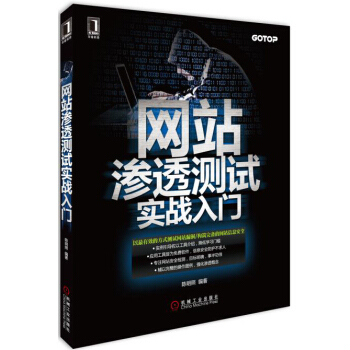
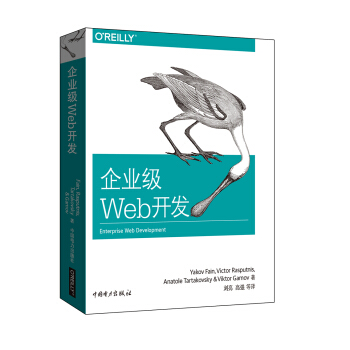

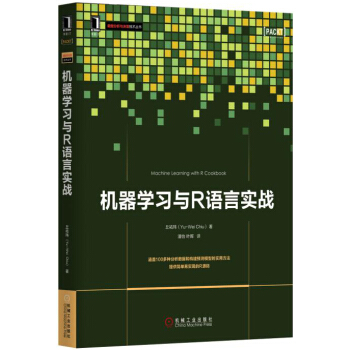
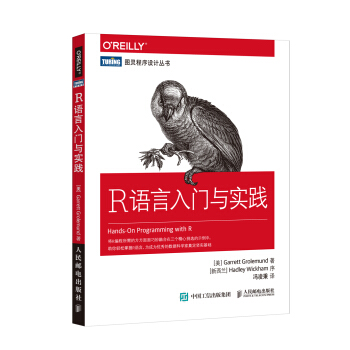
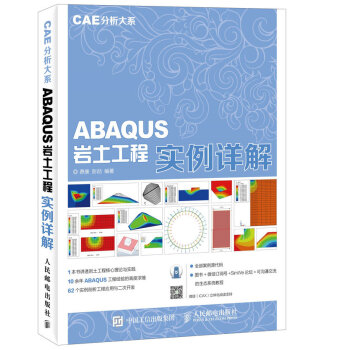

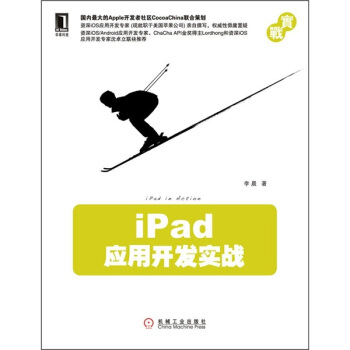
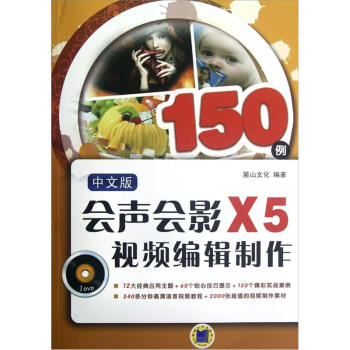
![預測性文本挖掘基礎 [Fundamentals of Predictive Text Mining] pdf epub mobi 電子書 下載](https://pic.tinynews.org/11128979/rBEHZVDFOkoIAAAAAADuWPUpA8AAADMtgDPb98AAO5w240.jpg)
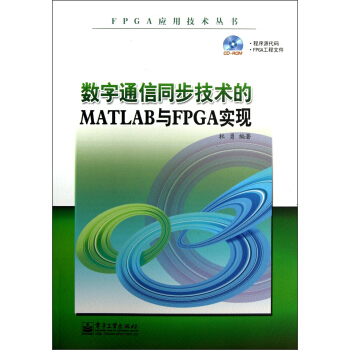

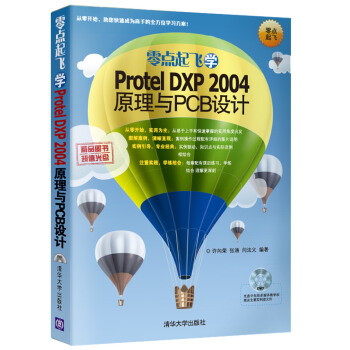

![Cocoa入門:使用Objective-C(第3版) [Learning Cocoa with Objective-C] pdf epub mobi 電子書 下載](https://pic.tinynews.org/11598723/56f635aaN99187c34.jpg)
